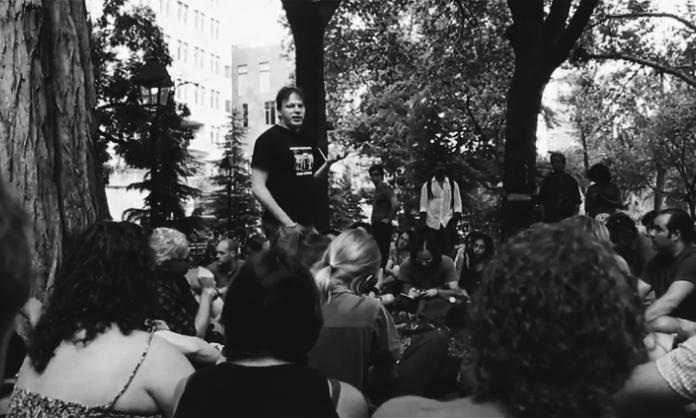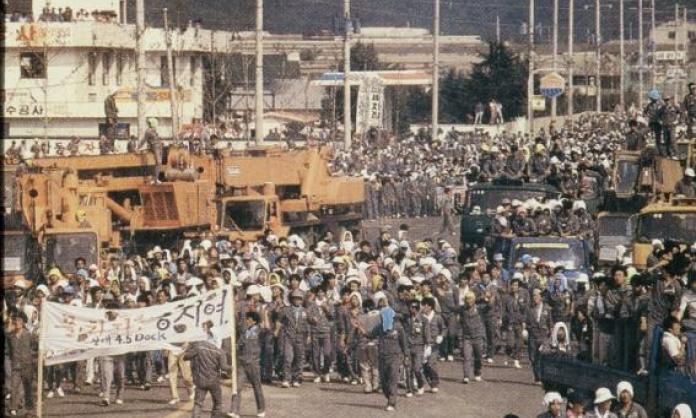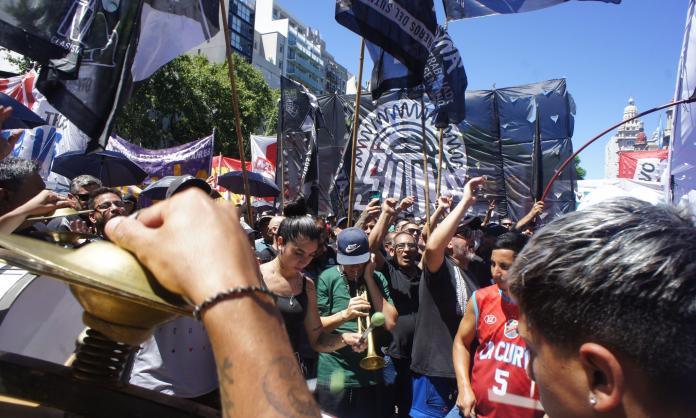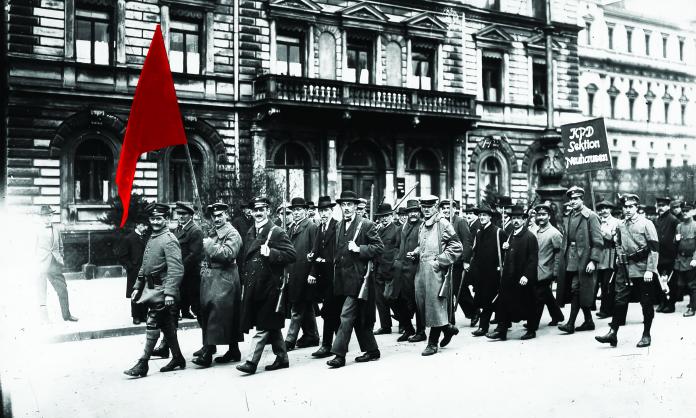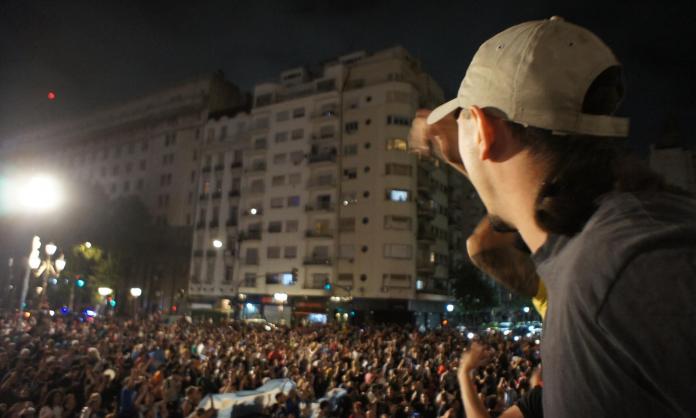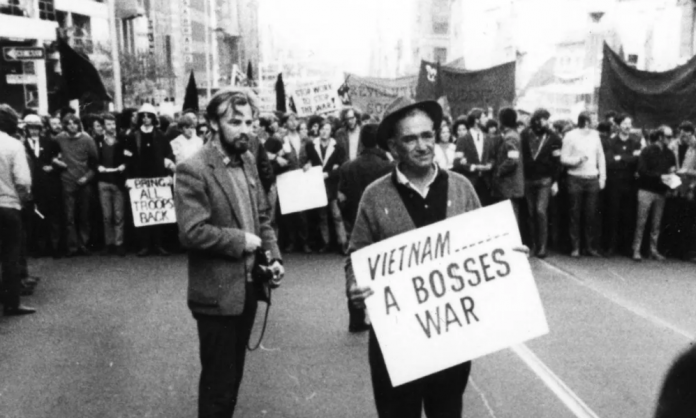The news that David Graeber had died so young, at only 59, was shocking and saddening. He had one of those inherently lively, energetic personalities that seems to contradict the concept of death itself. He earned respect as one of the few modern anarchist thinkers who tried to really apply anarchism systematically as a total worldview: anarchist principles informed his anthropological and historical research, his economics, and his interventions into real world politics.
Graeber’s anthropological work is fascinating and valuable; his major book, Debt, is thought-provoking, though basically flawed. But his most important role was as an activist. He was one of the people who could truthfully be called a leader of the theoretically leaderless Occupy Wall Street movement. That movement (and its local expression in Australia) was also the phenomenon that first got me involved in active politics, and I still feel quite sentimental about it. Occupy was one of the first real mobilisations of anti-austerity sentiment, one of the early moments when the breakdown of neoliberalism went beyond a crisis of bourgeois decisionmaking, and began to generate real resistance. In one year, 2011, we were given the Arab revolutions, the European movements of the squares, and finally Occupy Wall Street. Graeber was then at the peak of his fame. His book on debt had just come out, and he was a central organiser of Occupy’s founding protest-camp in New York. He determined its initial slogans (including "we are the 99%"), its principles, and its organising methods.
Graeber made the Occupy movement probably the most important recent experiment in anarchism. He wrote copiously on how anarchist theory led him to insist that the movement adopt specific principles: a refusal to make political demands, a focus on consensus decisionmaking, and the use of totally autonomous affinity groups where consensus couldn't be reached. Instead of presenting demands that could be realised or refused by existing political power structures, or taking any binding decisions at all, Occupy was to prefigure a new society based on the autonomy of the individual, operating on the social margin (in a park) rather than the centre of capitalist social relations (the workplace)–although the new marginal, autonomous spaces were provocatively established within some of the big urban centres of capitalism.
Graeber and other anarchist Occupants wrote extensively on how these principles–the refusal of politics, the consensus and autonomy, and the prefigurative search for marginal spaces rather than any attempt to construct a revolutionary counter-power–derived from the fundamentals of anarchist theory. In this, Graeber was absolutely correct. The refusal to make decisions or hold the movement accountable to votes, the refusal to take up demands, and the attempt to execute a daring escape from the capitalist production process by sheer force of will can all be traced directly back through to Bakunin, Proudhon, and the other theorists of classical anarchism.
He also argued that these principles were the reasons the movement was so successful, why it gained a mass character, and how it could resist incorporation into capitalism. In his retrospective book on the origins and nature of Occupy, The Democracy Project, he merged together Occupy’s hostility to the political establishment with its refusal to take any political positions at all. He likewise linked its (unfulfilled) promise of radically democratic internal decisionmaking with its aspiration to prefigure a future anarchist society:
One would imagine that people in such a state of desperation would wish for some immediate, pragmatic solution to their dilemmas. Which makes it all the more striking that they were drawn to a movement that refused to appeal directly to existing political institutions at all...It was only when a movement appeared that resolutely refused to take the traditional path, that rejected the existing political order entirely as inherently corrupt, that called for the complete reinvention of American democracy, that occupations immediately began to blossom across the country. Clearly, the movement did not succeed despite the anarchist element. It succeeded because of it… The original conception of [Occupy Wall Street] reflected this anarchist sensibility in several different ways. Most obviously, the refusal to make demands was, quite self-consciously, a refusal to recognize the legitimacy of the existing political order of which such demands would have to be made. ... Direct action is, ultimately, the defiant insistence on acting as if one is already free.
Those claims look very different now. Occupy’s lasting legacy was in its identification of the 1% as the enemy, its claim that capitalist democracy was inadequate, and its mission to develop a more radical democratic practice as part of its very existence as a movement. And Graeber was right: Occupy’s prefigurative approach did immediately appeal to people who for a time felt deeply disillusioned with the current political order, with its fake democracy and with its rotten institutions; people who hoped that the endless General Assemblies in the parks could provide a more authentic expression of participatory, collective democratic decisionmaking that would serve the majority, not the minority. But the principle of consensus has the opposite effect. It makes it impossible to make decisions on a mass scale –as Graeber explained, that's the intended effect. It then forces anyone who aims to achieve any particular goal to spin that off into a small and unaccountable affinity group:
You’ll only get broad and tepid solutions if you bring everything to the General Assembly. That’s why we have working groups, empower them to perform actions, and encourage them to form spontaneously. This is another of the key principles in dealing with consensus and decentralization. In an ideal world, the very unwieldiness of finding consensus in a large group should convince people not to bring decisions before this large group unless they absolutely have to. That’s actually the way it’s supposed to work out.
In the end, that meant that the Occupy movement was unable to live up to its promise of radical democracy: it could inspire lengthy discussions about democracy, but could not make any democratic decisions. It became the powerless mirror of bureaucratic capitalist politics: real decisions could only be made by the tiniest unelected and unaccountable groups.
The proposition that Occupy gained a special power from its refusal to take up demands has also aged badly. Graeber himself became fairly fixated on a particular demand, a “debt jubilee”, while the last two years have seen the explosion of movements of far greater power and mass participation than Occupy, all adopting demands that mobilise the loyalty and participation of millions.
In fact, Occupy’s principles would forbid a movement adopting the demand to abolish or defund the police–or even to vote on whether to adopt it. Occupy’s marginality and its decentralisation meant it couldn't resist a short, sharp assault from the centralised power of Obama’s Department of Homeland Security, which swept the parks clear from coast to coast: Occupy had no social power rooted in the production process that could resist such an assault, no capacity to organise swiftly, and no popular demands that could inspire others to come to its defence when it was under attack. When each Occupy camp fell into its terminal crisis, usually under police pressure, it would generally be consumed by unending General Assemblies engaged in a futile, days-long search for consensus as participation dwindled, as I witnessed to my despair in Melbourne. It would have contradicted the anti-political principles of Occupy to declare that all those who supported its program should have swarmed to its defence: the movement was based on the principled refusal to take up a program.
In the years following the exhaustion of Occupy, some of its energy (and not a few of its activists) found a new home in highly centralised, state-focused, and demand-driven reformist and liberal political projects, from Podemos to Bernie Sanders. Occupy rejected the traditional power structures of capitalism, but refused to directly challenge them. The electoral projects simply embraced the traditional power structures, and aimed to transform them. Neither worked.
Occupy refused to seek power, so it has no rap sheet of crimes equivalent to Syriza’s implementation of austerity, Podemos’ coalition with the establishment, or Sanders’ incorporation into the machine of Clinton and Biden. But by leaving the vacuum of power open, it contributed to the prestige of those later state-focused movements that did, ultimately, betray the hopes of their supporters. Occupy presented its anarchist ideology as the only alternative to capitalist politics-as-usual. The exposure of the anarchist model’s limitations led many to embrace the quest for power within the state; the failure of that quest will lead some back to approaches like that of Occupy, which can’t resolve the problems of structural racism, police violence, economic inequality, or climate change.
Since Occupy faded from the scene, the principles of consensus decisionmaking, affinity-group direct action, camp-based prefiguration, and the rejection of politics have continued to operate on the fringes of the environment movement, outside the cities, around camps that aim to prevent logging and disrupt the construction of mines. For a brief period, Occupy's principles reemerged as the organising logic of something approaching a mass phenomenon, as Extinction Rebellion briefly absorbed the energy of a new wave of urban climate-change activism. For that short time, Occupy found a real spiritual successor, when Extinction Rebellion chapters set up protest camps in which the refusal of politics, the focus on consensus, and even the unforgettable hand gestures of Occupy returned to the cities. The passing of movement energy through Occupy and Extinction Rebellion shows that not just the process, but also the demands of the moment–for equality, and for climate justice–drive new activists into movements; the distinctive anarchist strategic contributions we tested at Occupy limit their development. Movements need demands and democracy. Graeber was right that if they are to deepen, movements need more than slogans: to become really radical, they need to create space for discussion. But they also need the capacity to put demands, and to make decisions.
Graeber’s intervention helped to take anarchist methods from the fringes of squats, zines, and academic conferences, and made them some of the defining attributes of one of recent history’s more important social movements. Under Graeber’s influence, anarchism provided the strategic framework for the first popular expressions of opposition to austerity in the US. That means that activists now have the advantage of considering that legacy, and learning the lessons of a real test of whether these principles, applied on a large scale, are suitable for challenging the deep structures of capitalism. The promise of radical democracy developed in a movement was attractive, and remains vital if capitalism is to be overthrown.
The development of Occupy was an important experiment in applying the principles of anarchism, powered with a new energy that came from a widespread desire for an alternative to austerity and a willingness to embrace radical solutions. Those principles failed. In that movement's wake, so has a wave of state-focused reformism been tested, and that strategy has failed as well in its turn. Over the course of the crisis of the last decade, activists have experimented with rejecting politics and trying to create a new society outside the structures of capitalism. After that, they’ve tried using political demands to mobilise mass support for a project of capturing and transforming the structures of capitalism. Another option still remains untested in this prolonged crisis: constructing a revolutionary counter-power out of workers’ struggles within the capitalist production process itself, taking up demands that can mobilise support for a direct challenge to the capitalist state. Let’s hope we have a chance to test this method before too long.




